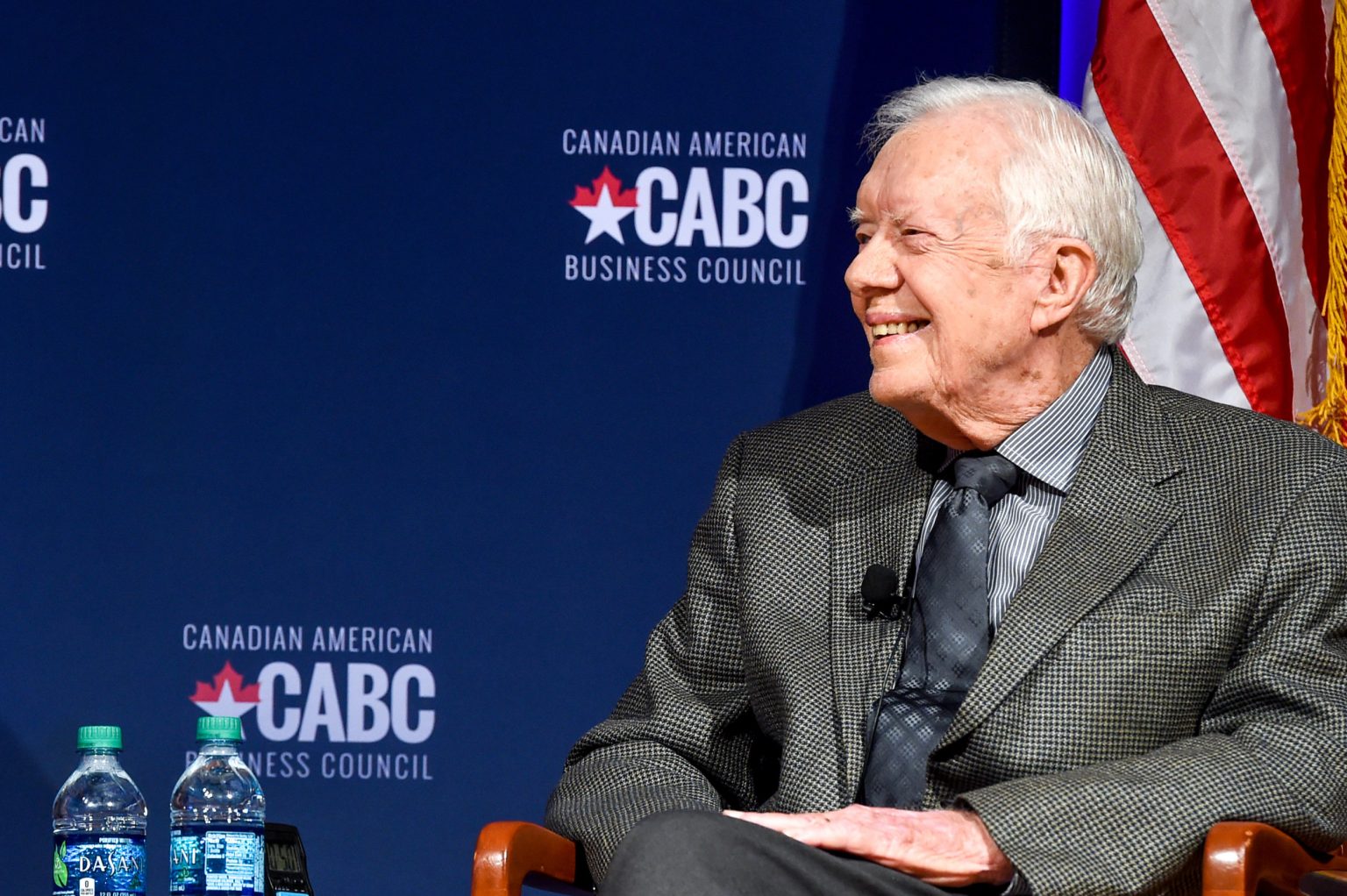James Earl “Jimmy” Carter, Jr., the 39th president of the United States, passed away at the age of 98, leaving behind a remarkable legacy spanning politics, humanitarianism, and a courageous battle against cancer. His presidency, though just a single term, was marked by significant achievements, including the Camp David Accords, which brought peace between Israel and Egypt, and the Panama Canal treaties. Beyond the Oval Office, Carter dedicated his life to advancing human rights, promoting democracy, and alleviating suffering through the Carter Center, an organization he founded with his wife, Rosalynn. His unwavering commitment to these causes earned him the Nobel Peace Prize in 2002, a testament to his profound impact on the world. Carter’s life was a testament to his deep faith, his unwavering commitment to service, and his remarkable resilience in the face of adversity.
In the summer of 2015, amidst the fervor of the impending 2016 presidential election, Carter faced a daunting personal challenge: a diagnosis of stage IV melanoma. The cancer, having originated in his liver, had metastasized to his brain, presenting a formidable threat to his health. Carter, with characteristic candor and composure, publicly announced his diagnosis, revealing the details of his condition and the treatment plan he would undergo. Despite the gravity of the situation, he maintained a remarkably positive outlook, expressing a sense of peace and acceptance derived from a life well-lived. He acknowledged the reduced life expectancy associated with his diagnosis but emphasized his focus on continuing his work at the Carter Center and spending precious time with his family.
The news of Carter’s cancer diagnosis resonated deeply across the nation and the world. His courage in the face of adversity inspired countless individuals battling their own health challenges. His willingness to openly discuss his illness helped raise awareness about melanoma, a dangerous form of skin cancer that often goes undetected until it reaches advanced stages. Carter’s experience underscored the importance of early detection and prompt treatment in combating the disease. His public battle became a symbol of hope and resilience for many, demonstrating the power of a positive attitude and a strong support system in navigating difficult times.
Carter’s medical team embarked on an aggressive treatment strategy involving pembrolizumab, a novel immunotherapy drug approved by the FDA just a year earlier. Immunotherapy, a revolutionary approach to cancer treatment, harnesses the body’s own immune system to fight cancer cells. In Carter’s case, pembrolizumab, along with targeted radiation therapy, proved remarkably effective. After four rounds of treatment, scans revealed no detectable cancer cells in his body. This remarkable recovery, announced by Carter himself during a Sunday school lesson at his church in Plains, Georgia, was hailed as a medical marvel and a testament to the advancements in cancer treatment.
The success of Carter’s treatment not only extended his life but also provided critical insights into the potential of immunotherapy in treating advanced melanoma. His case became a beacon of hope for other patients and inspired further research into immunotherapy, a field that has since revolutionized cancer care. Carter’s experience demonstrated that even in the face of seemingly insurmountable odds, advancements in medical science can offer new hope and possibilities for patients battling life-threatening diseases. His story became a symbol of the power of medical innovation and a source of encouragement for countless individuals facing similar challenges.
Beyond his personal battle with cancer, Carter’s life stood as a testament to his unwavering commitment to service. From his time as a peanut farmer and naval officer to his presidency and beyond, he dedicated himself to making a positive impact on the world. His work with Habitat for Humanity, his efforts to eradicate diseases like Guinea worm, and his tireless advocacy for human rights and democracy exemplified his deep-seated belief in the power of compassion and action. Carter’s legacy continues to inspire generations to strive for a more just and equitable world, a world where peace, human rights, and dignity are cherished and protected.

